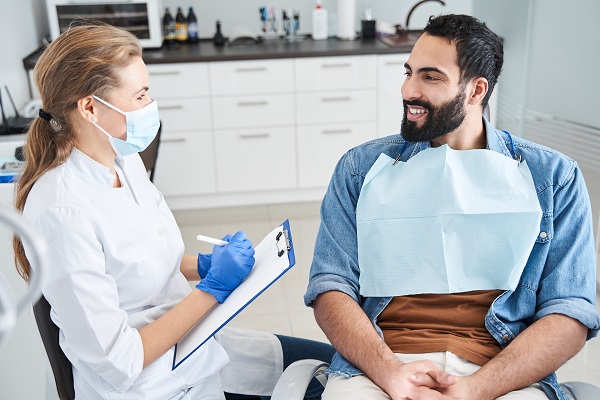What Happens After a Root Canal?

When you are experiencing pain due to the inflammation or infection of the tooth pulp, the dentist will usually recommend a root canal treatment. It is an effective treatment to eliminate pain, save the tooth and restore functionality. At the dental office, the dentist will do their best to ensure a pain-free treatment and keep you comfortable. The dentist will provide detailed information since you will probably want to know what happens after the treatment.
What to expect
A root canal is a treatment during which the dentist removes decaying or necrotic tissue from the tooth. The area is disinfected and treated to eliminate all traces of the infection. It is normal to notice some swelling, discomfort or sensitivity after the treatment. This may continue for several days or a few weeks.
The local anesthetic that the dentist will administer at the beginning of the treatment numbs the teeth for several hours. As the numbness starts to wear off, one might experience some sensitivity and discomfort. Most times, simply taking over-the-counter pain relievers like ibuprofen and acetaminophen should help with the pain. Patients who are concerned about the pain can discuss prescription options with the dental professional. If the pain escalates, prescription antibiotics may be required to treat a potential infection.
Aftercare
After the procedure, applying a cold compress to the face, 15 minutes at a time, can help prevent swelling. Patients will need to stick to a diet of soft foods and avoid anything that may irritate the gums. It is also advisable to avoid chewing around the area or touching the tooth.
In the following days, brushing should be done carefully so the toothbrush does not cause irritation. The area needs to heal and will be sensitive for some days after the root canal procedure. Touching the tooth and poor oral hygiene can cause reinfection.
Caring for a temporary crown
Sometimes, the patient may need to return for a permanent crown. The dentist will place a temporary crown to protect the tooth and prevent further damage while the permanent crown is being made. It is better to avoid eating or drinking hot drinks or food until the numbness wears off. This is to prevent accidental bites or burns.
While wearing the temporary crown, it is best to avoid hard or sticky foods that may damage or expose the treated tooth. Brushing and flossing can continue normally until the dentist places the final dental crown.
Usually, the follow-up appointment for the permanent crown happens after two weeks. However, if patients experience increased pain, it could be the sign of an infection. They will need to contact the dental office quickly so that they can treat post-procedure complications. An appointment will also be required if the temporary crown breaks or comes off.
Final note
If you are currently experiencing persistent tooth pain or sensitivity, you need to book an appointment with the general dentist for treatment. If it is the case of an infection, the dentist will perform a root canal to restore your oral health.
Request an appointment here: https://www.drkhorsand.com or call Khorsand Dental Group at (760) 394-3082 for an appointment in our El Centro office.
Check out what others are saying about our dental services on Yelp: Root Canal Treatment in El Centro, CA.
Related Posts
If you think you may need a root canal, you should visit our El Centro dental office immediately for treatment. Root canal treatment is essential to your oral health and can save your tooth. Contrary to popular belief, a root canal is nothing to fear, but rather a simple, discomfort-free treatment that can save the…
Our mothers have all taught us consuming sweets causes cavities but that preventive dentistry can help counteract the effects. The first thing to know is that this is not exactly correct. The bacteria in plaque feasts on residual sugar left on teeth. This creates lactic acid build up which lowers the pH surrounding the teeth,…
Wondering what an emergency dentist can do for you? Read on to learn more about this type of dental health professional. Dental emergencies can arise unexpectedly, causing significant discomfort and anxiety. An emergency dentist can help in such cases. They provide immediate care and relief by addressing urgent dental problems that cannot wait for a…
A toothache is often the first sign that you need to visit the emergency dentist. If the toothache persists for more than a few days, you could be dealing with an infected tooth or worse. Without treatment, the situation may worsen and cause eventual tooth loss. The dentist will examine the tooth to learn the…
